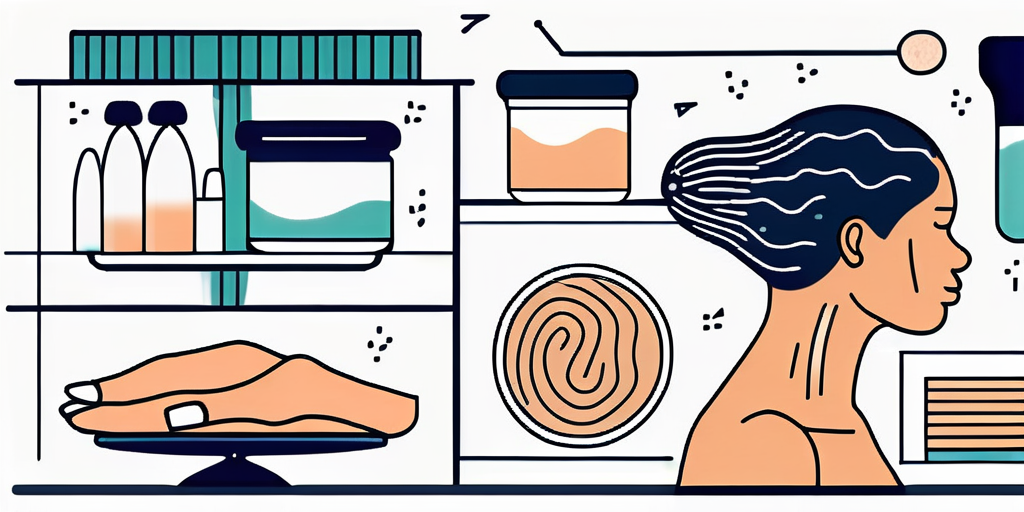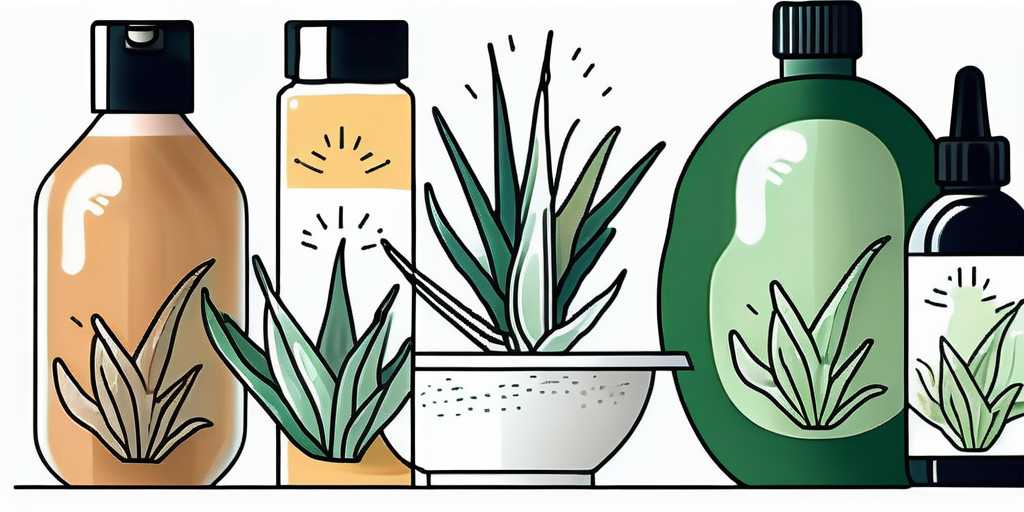Effective Remedies for Itchy Scalp with No Dandruff

Dandruff can be a major nuisance, causing itching and discomfort on the scalp. However, what if your scalp is itchy, but without the presence of dandruff? This can be equally frustrating. In this article, we will explore some effective remedies for itchy scalp with or without dandruff, and help you find relief while supporting your scalp’s optimal health.
Understanding the Causes of an Itchy Scalp
An itchy scalp can arise from various causes, and identifying a root cause can help direct proper treatment. Let's delve into some common triggers and medical conditions that can lead to scalp itchiness.

When it comes to common triggers, dry skin is often a culprit. The scalp, like any other part of the body, can become dry due to factors such as cold weather or excessive washing. This dryness can cause itching and discomfort.
In addition to dry skin, certain hair products can also contribute to an itchy scalp. Ingredients like sulfates and fragrances can irritate the scalp, leading to that persistent itch.
Environmental factors can also play a role in scalp itchiness. Harsh weather conditions, such as extreme heat or cold, can strip the scalp of its natural moisture, leaving it dry and prone to itching. Pollution, with its harmful particles and pollutants, can also irritate the scalp and trigger that incessant urge to scratch.
Aside from external factors, our own habits can worsen scalp itchiness. Frequent scratching of the scalp can damage the skin barrier, leading to more itching and potential infections. Wearing tight hats or helmets can create friction and heat, causing sweat buildup and exacerbating the itching sensation.
Medical Conditions Leading to Itchy Scalp
While dandruff is a common cause of an itchy scalp, there are other medical conditions that can trigger this discomfort. One such condition is psoriasis, a chronic autoimmune disease that affects the skin. Psoriasis can cause red, scaly patches on the scalp, accompanied by intense itching.
Eczema, another skin condition, can also lead to an itchy scalp. This inflammatory condition can cause dry, itchy, and irritated patches on the scalp, making it difficult to resist the urge to scratch.
Seborrheic dermatitis, often called dandruff when mild and limited to the scalp, is another culprit behind itchiness. When severe, this condition is characterized by red, flaky, and greasy patches, accompanied by itching and discomfort.
Fungal infections, such as ringworm or tinea capitis, as well as yeast, such as malassezia, can also result in an itchy scalp. These infections are caused by various fungi and can lead to red, scaly patches with hair loss in some cases.
If you suspect that a medical condition might be causing your scalp itchiness, it is important to consult with a healthcare professional for an accurate diagnosis and appropriate treatment. They can provide you with the necessary guidance and prescribe medications or recommend lifestyle changes to alleviate your symptoms and restore comfort to your scalp.
The Role of Hygiene in Scalp Health
Proper hygiene practices play a crucial role in maintaining a healthy scalp and minimizing itchiness. Let's explore some essential measures you can take to ensure optimal scalp hygiene.
Did you know that your scalp is home to millions of hair follicles and sebaceous glands? These glands produce sebum, a natural oil that helps keep your scalp and hair moisturized. However, when sebum production becomes excessive or if dirt, oils, and product residue accumulate on the scalp, it can lead to itchiness and discomfort.
Choosing the Right Hair and/or Scalp Treatment Products
The hair treatment products you use can have a significant impact on your scalp health. Opt for products that are specifically formulated to soothe and nourish the scalp, promoting a healthy environment for hair growth.
When selecting hair products, look for ingredients like urea, niacinamide, phytochemicals (plant based), melatonin and alpha-tocopherol. These natural ingredients possess soothing properties that can alleviate itchiness and irritation. Niacinamide, in particular, has antimicrobial properties that can help combat dandruff and fungal infections, which can contribute to scalp discomfort.
Avoid products that contain harsh chemicals and fragrances, as they can strip the scalp of its natural oils and cause further irritation. Instead, opt for gentle shampoos and conditioners that are free from artificial fragrances. These milder formulations are less likely to cause scalp dryness and sensitivity.
By following proper hygiene practices, such as using the correct hair washing techniques and choosing the right hair treatment products, you can maintain a healthy scalp and minimize itchiness. Remember, a healthy scalp is the foundation for strong, beautiful hair!
Natural Remedies for Itchy Scalp
If you are seeking reliable, natural solutions for an itchy scalp, consider the Alon Formulas. Unlike traditional approaches that often rely on strong shampoos, tea tree oil, or even steroids, the Alon formulas prioritize supporting the scalp to restore a healthy balance. These innovative formulas are meticulously crafted with natural ingredients that repair, nourish, and shield the scalp. You'll find the very best nature has to offer, such as bakuchiol, a natural and gentler retinol alternative to rejuvenate the scalp. Experience the difference with the Alon formulas and say goodbye to scalp itchiness.

Heal and restore your scalp with a holistic approach that mirrors the care of youthful skin—moisturizing, nourishing, and protecting your scalp's natural flora. Don't let outdated treatments hold you back. Shop Now and experience the cutting-edge of scalp care with Alon Labs.

